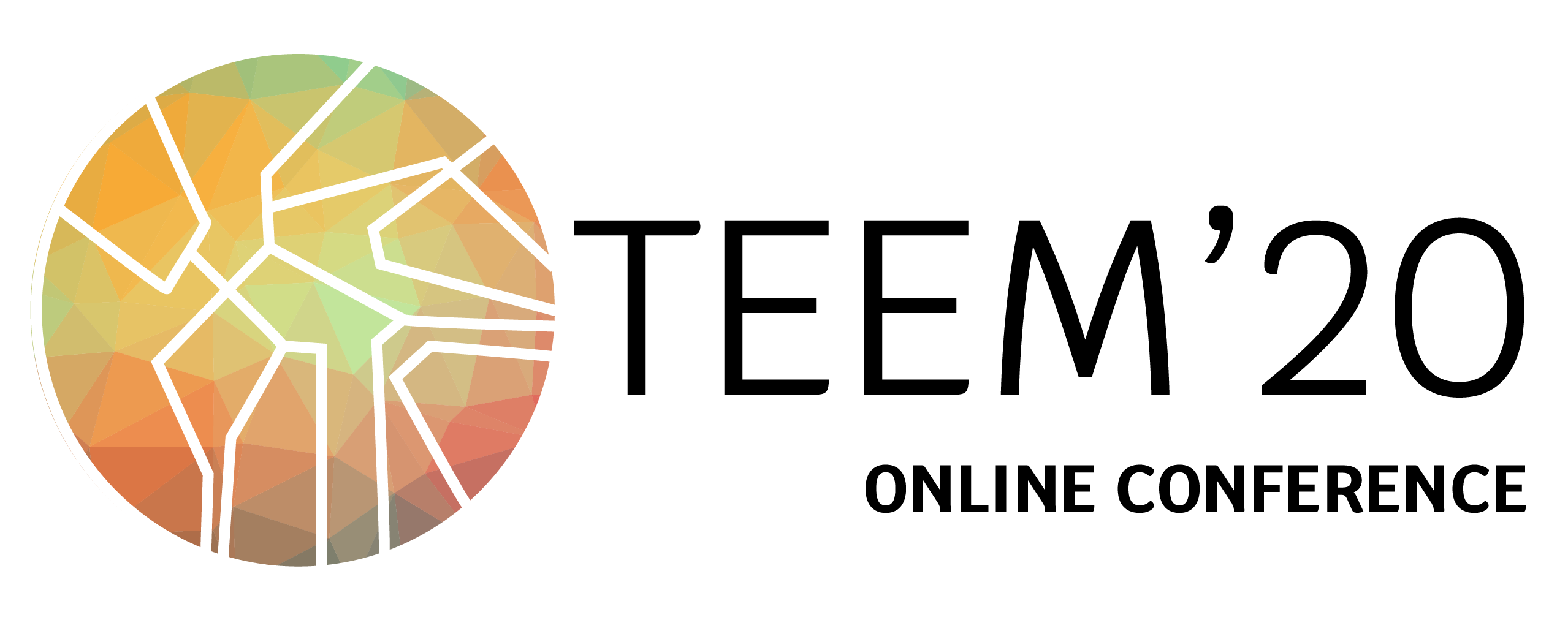Presentation
Engineering students’ expertise relies on strong consolidated scientific and technological learning. However, more and more, it is their ability to adapt to new situations and competence in linking and using those knowledges that can make a difference. Also working under new environments and in multicultural teams. Their social skills and characteristics like teamwork, creativity, communication or leadership are already established as fundamental competences students must also develop during their education. Furthermore, although the great majority of graduates are scientifically prepared, sometimes they lack competence dealing with daily problems due to inexperience while addressing complex and multidimensional problems. The majority of young graduate’s struggle in their first days / months / years to keep up with these regular demands. Senior engineers do most of this liaison, teaching young graduates the magic of their practice. This fact is not new, and probably will always occur, however, the modern world leaves no room for this initial period to be extended in time. So, there are still some aspects that can be improved providing them new and better ways to be prepared. Academic and professional worlds could also be more strategically aligned in this scope, since contextualized knowledge is always an added value for the future ahead. Last but not least, this track also addresses the training and empowerment aspects of those individuals who are engaged as engineering educators in their professional life. Aspects such as formal, informal, and non-formal training of engineering educators are particularly welcomed. A better understanding of this problem is the step forward in the right direction.
Topics
- Project work in engineering education
- PBL engineering experiences
- Learning gains from contacts with engineering profession
- Students contacts with engineering profession
- Improving engineering professional, social and/or scientific competences
- Engineering graduate students’ competences versus companies’ professional needs
- Long term vision about engineering education
- Capstone projects – final year projects
- Cornerstone projects – first year projects
- Emerging technologies in teaching
- Merging academia and professional practices
- Multicultural aspects of engineering education
Track Scientific Committee
Maria Clara Viegas (Instituto Superior de Engenharia do Porto, Portugal) – Chair
Gustavo Ribeiro Alves (Instituto Superior de Engenharia do Porto, Portugal) – Chair
Maria Arcelina Marques (Instituto Superior de Engenharia do Porto, Portugal) – Chair
Alexandre da Silva Pinto (Escola Superior de Educação do Porto, Portugal)
Ana Pavani (PUC-Rio, Brazil)
André Fidalgo (Instituto Superior de Engenharia do Porto, Portugal)
António Barbot (Escola Superior de Educação do Porto, Portugal)
Bernardino Lopes (Universidade de Trás-os-Montes e Alto Douro, Portugal)
Bertil Marques (Instituto Superior de Engenharia do Porto, Portugal)
Carlos Felgueiras (Instituto Superior de Engenharia do Porto, Portugal)
Claudius Terkowsky (TU Dortmund University, Germany)
Diogo Ribeiro (Instituto Superior de Engenharia do Porto, Portugal)
Elisabete Nogueira (Instituto Superior de Engenharia do Porto, Portugal)
Isabel Brás Pereira (Instituto Superior de Engenharia do Porto, Portugal)
J. P. Cravino (Universidade de Trás-os-Montes e Alto Douro, Portugal)
Javier Garcia-Zubia (Universidad de Deusto, Spain)
Joaquim Alves (Instituto Superior de Engenharia do Porto, Portugal)
Juarez Bento da Silva (Universidade Federal de Santa Catarina, Brazil)
Luis Schlichting (Instituto Federal de Santa Catarina, Brazil)
Manuel Castro (UNED, Spain)
Margarida Ribeiro (Instituto Superior de Engenharia do Porto, Portugal)
Nilza Costa (Universidade de Aveiro, Portugal)
Ricardo Costa (Instituto Superior de Engenharia do Porto, Portugal)
Susana Marchisio (Universidad de Rosario, Argentina)
Teresa Sena Esteves (Instituto Superior de Engenharia do Porto, Portugal)
Valentina Zangrando (Universidad de Salamanca, Spain)
